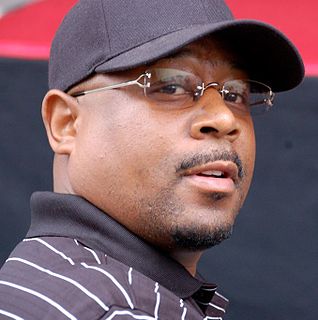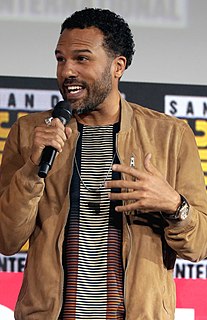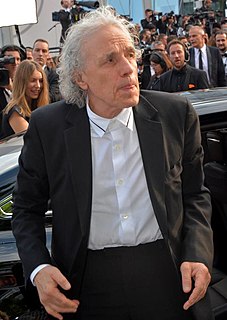A Quote by Michael Leunig
When people talk about their God, it is difficult to know what they actually mean, and when people talk about their atheism, it is usually incomprehensible also.
Related Quotes
It's botherin' me, man. You know, you can't say this, you can't say that, I'm like, well, how am I gonna talk about the world? You know? I mean I need to talk about something to you all, can I - can I do it? Can I talk to y'all? I mean, I hope the kids are in bed, you know, because I got to talk, y'all.
What happens at the average church or synagogue or mosque is that I don't know many priests or ministers or rabbis who say to their congregation, 'go home and talk about the religion at the kitchen table with your kids...talk about God, talk about what this is all about.' They say in general, come back on the weekend, we'll talk to you about it.
You can talk about things indirectly, but if you want to talk how people really talk, you have to talk R-rated. I mean I've got three incredibly intelligent daughters, but when you get mad, you get mad and you talk like people talk. When a normal 17-year-old girl storms out of the house or 15-year-old boy is mad at his mom or dad, they're not talking the way people talk on TV. Unless it's cable.
Every time you hear anyone talk about the Caribbean, whether it's Caribbeans themselves or people outside, there's always talk about women's bodies. Talk about this voluptuousness, this kind of stereotype of what a Caribbean person is. And I think these are stereotypes that even people inside the culture, we actually sometimes claim them and we're very proud.
I have been so blessed not only to talk about things that I want to talk about in my industry, but also to have a platform - and people want to hear about it. People want the change; people want the difference; people want to know what's going on. People want to see themselves in the industry that for so long has ostracized girls of my size.
I belong to a bowling team with black and Latino coworkers. And when we get together and we talk about politics - I'm almost quoting him - he said, we don't talk about Black Lives Matters. We talk about what matters to our families. We talk about jobs, and we talk about the fate of the country. That is America, and you can reach those people.
I'm not like most comedians. I don't deal with just heckles - I'm also dealing with threats and anger. Here I am, a brown person on stage being quite blunt. I talk about white privilege; I talk about U.S. imperialistic practices; I talk about colonialism. I'm not saying things that are easy for people to laugh at.
If you're not mechanically in the community with people from the community trying to talk about our party, talk about school choice, talk about SBA loans for business owners - if someone's not there, nothing is going to change. You also need to have the tone ... people believe obviously you like them. If people don't think you like them, then they're not going to vote for you.
I think that to me, films are personal affairs. It doesn't mean that I am against other people doing things differently, but I'm talking about what I can do. So I don't feel comfortable going to a new city or a certain class of which I don't have sufficient knowledge, doing research on that, and then writing a story about it I don't think I have the ability of presenting other people on screen in that way. It makes me uncomfortable. This doesn't mean that I only want to talk about myself. I want to talk about what I know.


































